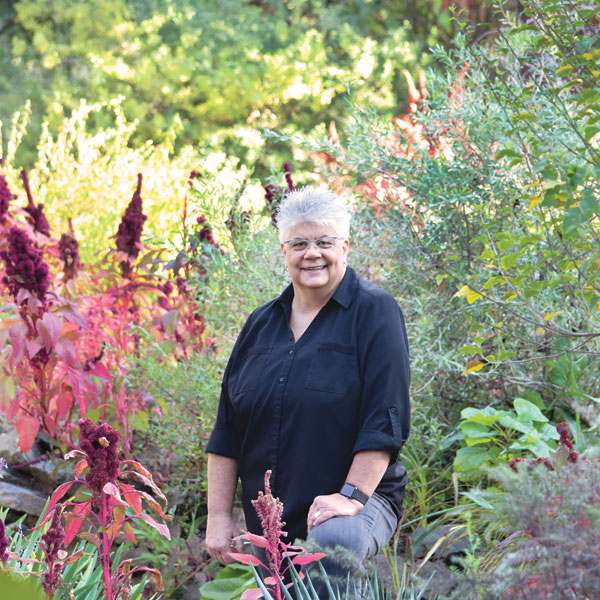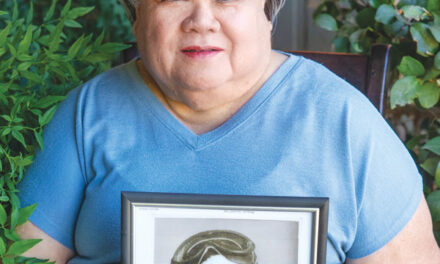Sacramento is home to many people eager to help their community by joining nonprofit groups. But there are holes in this safety net.
Our region has about 15,000 nonprofit groups. These include fraternal organizations, charities, service clubs, foundations and chambers of commerce. The economic impact of local nonprofits is a monster number.

So, if nonprofits fail, their loss ripples through the local economy and tears away parts of our social fabric.
The Impact Foundry is a support organization for nonprofits—a group that provides training, consulting, technical assistance and event planning while helping nonprofits build capacity.
“The nonprofit community has been in a growth mode ever since we came out of the big recession,” says Kim Tucker, The Impact Foundry executive director. “COVID-19 has hit the nonprofit in many ways.”
As Tucker explains, many nonprofits received pandemic-related funds to help with essential health services, food, homelessness and more. As the virus winds down, emergency dollars will likely disappear. Nonprofits could face a financial roller coaster.
It could be “feast or famine” when it comes to funding, Tucker says, but she is more concerned about nonprofits that receive the bulk of revenue through events. Many of those fundraising opportunities have been canceled or moved online.
“Nonprofits are really just like other small businesses,” Tucker says. “Nonprofits need to be entrepreneurial. We really don’t get much respect.”
Her solution is for nonprofits to address problems themselves, starting with the likelihood that some smaller nonprofits provide redundant services. “It’s likely there are many others doing the same thing and they might want to consider stronger collaboration,” Tucker says.
Nonprofits are often under contract with government entities. Sacramento County contracts out almost 80 percent of its health and human services to nonprofit groups.
“These nonprofits have to think like a business,” Tucker says. “They are engaging in a business contract with government. They aren’t begging for a living. They need to know the true value of what they offer and get paid accordingly.”
Strategic advice is the core service of The Impact Foundry. The organization helps nonprofit management and boards create more effective and efficient operations.
“Charity is about alleviating suffering,” Tucker says. “It’s the mission of many nonprofits but I think we need to go deeper. We need to do more than just solve immediate needs, but to find root causes in the system that leads to suffering.”
She believes it’s time for nonprofits to look at more than feeding people or finding temporary shelter for the homeless. It’s time to seek solutions that cause these problems in the first place.
Many nonprofits will have to close their doors, says Beth Hassett, executive director of WEAVE, a nonprofit that provides crisis intervention for survivors of domestic violence and sexual assault. WEAVE has a $10 million budget, 140 employees, thrift stores, and multiple sites and apartments for people in crisis who need shelter and services.
“I really feel for those nonprofits who made their budgets through fundraising events and volunteerism, because those have stopped or pivoted to online events,” Hassett says. “We’ve had to change. We had to find a way to deliver services in new ways when you can’t serve people in person.”
The pandemic caused a major influx of people seeking support from WEAVE. “It started in July,” Hassett says. “We saw triple the number of calls and serious cases. It was like the recession, where tensions in the home escalate. While there might have been mental and financial abuse before, it turned into serious physical abuse.”
Nonprofits employ thousands of local residents, engage in workforce development, buy office supplies, pay salaries and provide benefits. Ultimately, they touch everyone in the community and are a lifeline for groups that assist everything from the Sacramento Zoo and cultural arts to church groups and local fraternal organizations.
The work is important—and so is the health of our nonprofits. Tucker believes nonprofits should examine their management teams and boards. “You have to ask why the management and boards of many nonprofits don’t often represent the diversity of the people they serve out in the community,” she says. “We need more data; we need to map who we serve and find leadership that reflects those they serve.”
Whether many nonprofits survive the pandemic is a question mark. It will depend on how they improve their practices, promote themselves and align with the diversity of the communities they help.
Scot Crocker can be reached at scot@crockerbranding.com. Follow us on Facebook, Twitter and Instagram: @insidesacramento.















